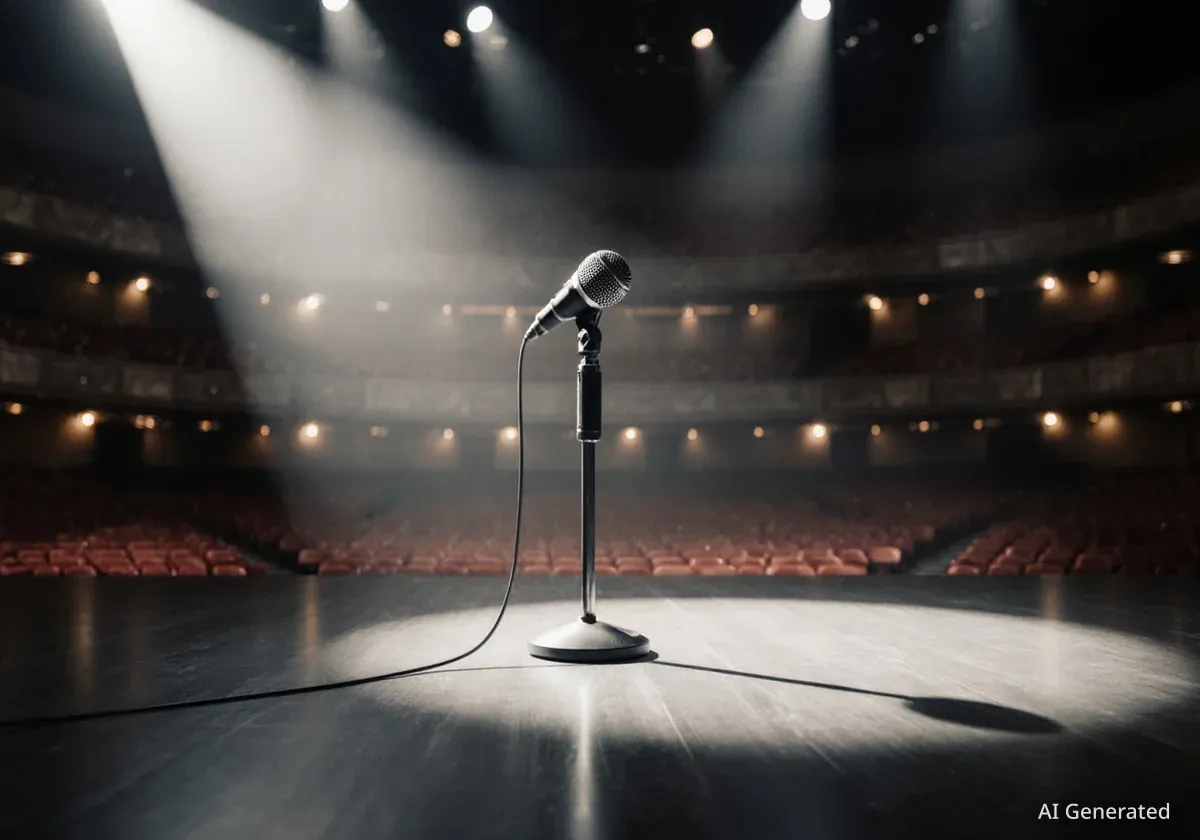Iron Maiden's lead singer, Bruce Dickinson, has renewed his criticism of fans who use their mobile phones during live performances. In a recent podcast appearance, Dickinson stated that viewing concerts through a screen prevents attendees from fully engaging with the show and connecting with the music on an emotional level.
Key Takeaways
- Bruce Dickinson expressed strong disapproval of phone use at concerts during an interview on the "Appetite for Distortion" podcast.
- He believes phones create a barrier between the performer and the audience, hindering emotional feedback.
- Dickinson described the dependency on phones as a "terrible disease" and a "failure of humanity."
- His comments follow a previous request from Iron Maiden's management asking fans to limit phone usage during their 50th-anniversary tour.
A Performer's View on Audience Connection
For Bruce Dickinson, a live concert is a two-way exchange of energy between the band and the audience. He explained that a sea of glowing screens obstructs this vital connection. The singer wants to see faces and feel a genuine reaction from the crowd, not perform for people looking down at their devices.
During the podcast, he voiced his frustration directly. Dickinson explained that the lack of direct engagement from a phone-focused audience can be disheartening for a performer who thrives on emotional feedback. He feels it fundamentally changes the nature of a live event.
"I also feel pissed off, because as a performer, I want to perform for an audience of people that have some emotional feedback, not a bunch of Android twerps," Dickinson stated.
The Need for Emotional Feedback
The core of his argument centers on the shared human experience of live music. Dickinson believes that capturing a low-quality video is a poor substitute for being present in the moment. He stressed that the true value of a concert comes from the sounds, the atmosphere, and the collective energy of the crowd.
He argues that when fans are focused on filming, they are not truly listening or feeling the performance. This creates a passive audience, which is the opposite of the dynamic environment heavy metal concerts are known for.
The Broader Debate on Phones at Shows
The issue of phone use at concerts is a long-standing debate in the music industry. Many artists, including Jack White, Bob Dylan, and A Perfect Circle, have implemented strict no-phone policies at their shows. They often use locking pouches like Yondr to ensure a phone-free environment, aiming to improve the experience for both the performers and the audience.
A 'Failure of Humanity'
Dickinson used strong language to convey his deep-seated opposition to the constant use of phone cameras. He suggested that the compulsion to record everything is a negative societal trend that extends beyond concert venues. He views it as a surrender of direct sensory experience to a digital intermediary.
"I wish the camera on those things had never been invented," Dickinson said. "It’s like some terrible disease that people feel the need to look at the world through this stupid little device. It’s like a failure of humanity. You’re surrendering your senses completely to this little fascist in your hand."
His comments frame the issue not just as a concert etiquette problem, but as a wider cultural phenomenon where people are choosing to observe life through a screen rather than living it directly. This perspective highlights his concern for how technology is altering basic human experiences.
Iron Maiden's Enduring Legacy
Formed in 1975, Iron Maiden has been a dominant force in heavy metal for nearly five decades. The band is renowned for its energetic and theatrical live shows, which rely heavily on audience participation and a powerful shared atmosphere—an element Dickinson feels is threatened by phone usage.
A Direct Appeal to Fans
Beyond expressing his frustration, Dickinson made a direct appeal to concertgoers. He urged them to reconsider their habits and embrace the full concert experience. His message was simple: be present and engage with your surroundings.
He offered a clear alternative to filming the show. "Put it down, put it in your pocket, and look around you. Look at the people, look at the joy, look at the band, feel the emotion, feel the music," he urged. This plea underscores his belief that the most valuable part of a concert cannot be captured on a phone.
Dickinson concluded this point by explaining the negative impact of phones on the very atmosphere he and the band work to create. "What a phone does, it cuts all of that off. And so I feel sad," he said.
Consistent Messaging from the Band
Dickinson's recent statements are consistent with the band's official position. Before Iron Maiden's 50th-anniversary tour began in May, the band's manager, Rod Smallwood, issued a message to fans. Smallwood asked attendees to show respect for the band and their fellow fans by refraining from using their phones excessively.
"Please respect the band, respect the other fans, and have the time of your lives as you join your Maiden family by singing your heart out, rather than getting your phone out!" Smallwood's statement read. Despite this request, it appears the behavior has continued, prompting Dickinson's more forceful public comments.




